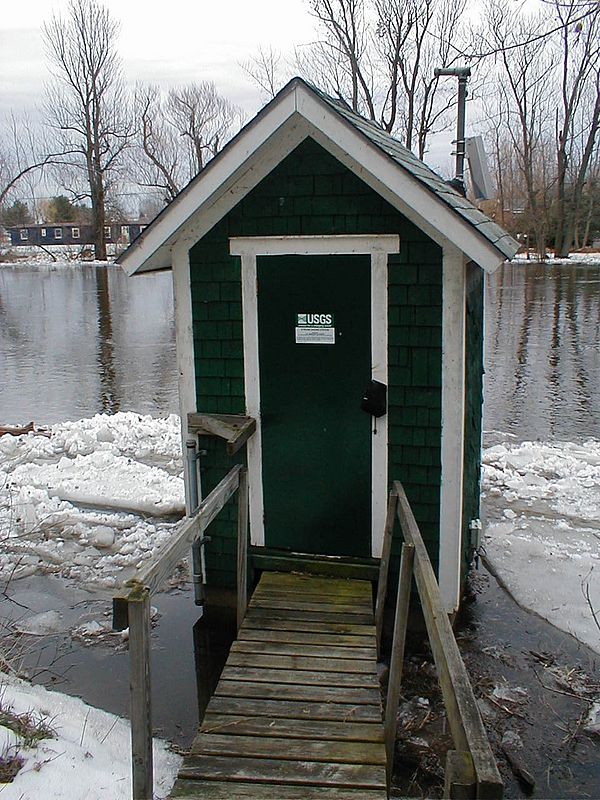Thanks to the work of Senators Leahy and Schumer, funding for USGS stream gages has been extended -- for the time being. Eighteen gages in the Champlain Valley – nine in Vermont and nine in New York - were slated for closure. The Senators arranged for continued funding through the Great Lakes Fisheries Commission. This will buy time for the gages, but does not represent a long-term solution to the fiscal problem. LCC continues to lobby for ongoing, sustainable funding to maintain the Lake Champlain gages in the long-term.
Leahy said the gages, “save lives and protect farmland and other property, and they are crucial in our work to clean up Lake Champlain. It’s a proven and effective network that well serves the people of Vermont and New York.”
Data from the gages are used to predict floods, calculate nutrient pollution, assess conditions for paddlers and anglers, and document potential impacts from climate change. “The gages are vital to our flood forecasting and warning system and to track the effectiveness of our nutrient reduction investments and assess lake health” notes LCC Executive Director Lori Fisher. In the long term, failure to maintain these extensive data sets will impair our ability to detect water quality trends. In the short term, loss of the gages will weaken our ability to predict floods. Stream gages provide a fundamental early warning system.
Money from the Great Lakes Fisheries Commission will provide only about one-fifth of what it costs to run the gages for a year. Additional support is still needed from the states or other sources. For a long-term fix to the problem, Congress needs to allocate funds to the National Stream Flow Information Program. The USGS gaging program has always been supported with a combination of local and federal funding with one third of the funding from USGS and the other two-thirds scraped together from local partners, now including the Great Lakes Fisheries Commission. Although Congress authorized USGS to pick up a larger portion of the costs they have so far failed to allocate any additional money to the program.
